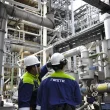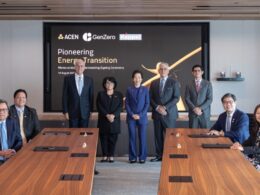The UK government will ban Great British Energy (GB Energy)—its state-owned clean power company—from sourcing solar panels connected to forced labour in China, in a significant amendment to upcoming energy legislation.
Energy Secretary Ed Miliband is set to introduce the change to the Great British Energy Bill to ensure that no part of the company’s supply chain is linked to slavery or human trafficking. The move follows mounting pressure over the use of materials sourced from China’s Xinjiang region, where the production of polysilicon—a key component in solar panels—has been linked to the exploitation of Uyghur Muslims through state-imposed forced labour schemes.
Although a similar amendment proposed by Lord Alton was rejected by ministers last month, a government source said there had since been a “clear acknowledgement” that GB Energy must act as a leader in ethical sourcing.
The change has been widely welcomed by human rights advocates and international observers. Fatih Birol, Executive Director of the International Energy Agency, praised the decision, stating: “I salute the UK government’s decision. Green technology materials must be produced in a socially and environmentally acceptable way.”
Labour MPs who had previously campaigned for tougher oversight of GB Energy’s supply chains hailed the decision as a victory, despite abstentions during the earlier vote in the House of Lords. However, Andrew Bowie, acting Conservative shadow energy secretary, labelled the move a “humiliating U-turn” for Ed Miliband and claimed it would undermine the UK’s clean energy targets.
Former Conservative leader Sir Iain Duncan Smith, a longstanding critic of the UK’s reliance on Chinese imports, said the amendment was necessary to avoid a rebellion within Parliament. “It’s a terrible situation to allow products that have been produced by slave labour,” he told the BBC.
The specific wording of the amendment is yet to be published, but government officials confirmed it will explicitly reference GB Energy and commit the firm to maintaining slavery-free supply chains. While enforcement is expected to be complex—given the opacity of global solar supply chains—government sources maintain the change will not hinder the UK’s net zero ambitions.
In 2023, a BBC investigation revealed the British Army had used solar panels from manufacturers with “very high” exposure to forced labour, drawing further scrutiny to UK procurement practices.
Luke de Pulford, Executive Director of the Inter-Parliamentary Alliance on China (Ipac), welcomed the policy shift but warned of systemic problems. “There’s a problem throughout the renewables sector with state-imposed forced labour in China,” he said, urging the government to diversify sourcing away from Xinjiang, which produces nearly 40% of the world’s polysilicon.
A spokesperson for the Department for Energy Security and Net Zero said the government is committed to building resilient and sustainable solar supply chains:
“No industry in the UK should rely on forced labour. Through GB Energy, we have a clear plan to support a new era of clean, homegrown power—free from human rights abuses.”
An update on the implementation of the changes is expected in the coming weeks.
















